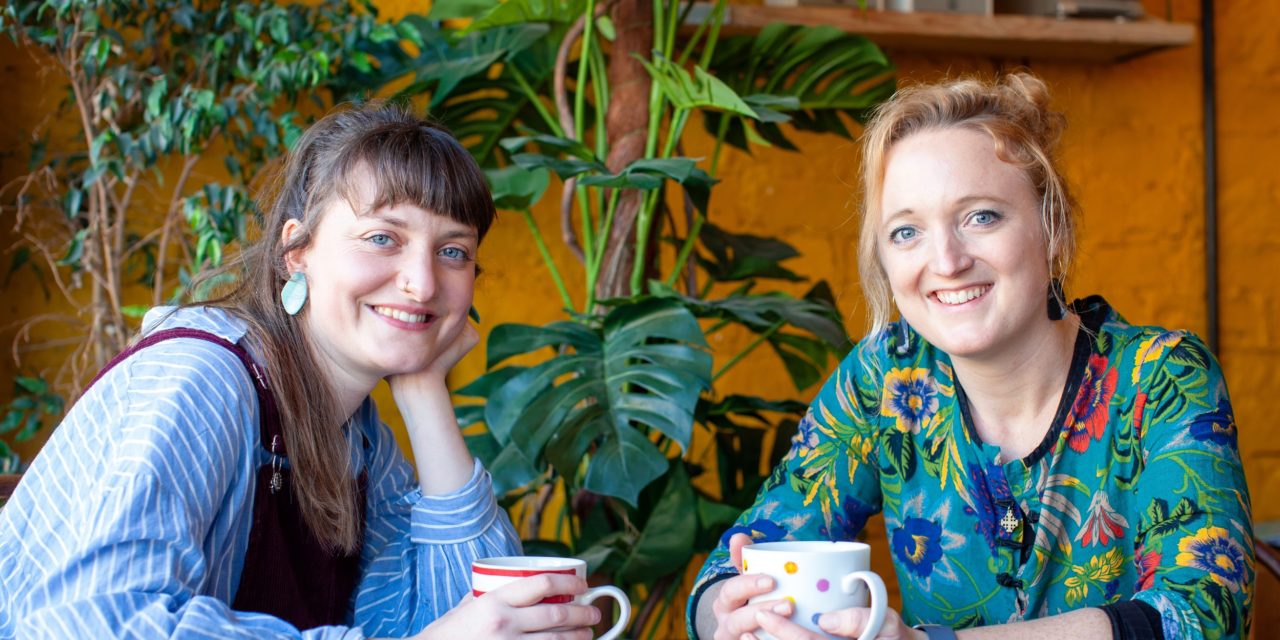Food and its ability to bring people together will be essential ingredients in County Durham’s bid to be UK City of Culture 2025.
Whether it is meeting a friend for coffee and a cake, fish and chips on a Friday night or the feast at the heart of a religious celebration – food is a key part of life. It is also closely linked to childhood memories and an individual’s sense of home.
The idea of food as an expression of cultural identity will be explored through the People’s Food Project, one of several initiatives being developed as part of County Durham’s bid to be UK City of Culture 2025.
As well as recognising the county’s rich culinary offer, with special events to bring communities together, the People’s Food Project will explore food culture. This is the term used when considering the practices, attitudes and networks surrounding the production, distribution and consumption of food.
The aim is to increase access to healthy food in communities across the county, while creating opportunities for people to get together and learn more about other cultures and cuisines.
Culture Durham, a partnership of organisations including Durham County Council and Durham University, is spearheading the bid and has joined forces with REfUSE Durham to develop the People’s Food Project.
Located in Chester-le-Street, REfUSE Durham is a social enterprise committed to reducing food waste, raising awareness of the climate and ecological impact of food waste and creating an environment where good food, good company and opportunities to learn new skills are available to those who want them.
The team, led by Mim Skinner and Nikki Dravers, takes in 13 tonnes of unwanted food each month and redistributes it across the region. This includes serving up imaginative dishes at the REfUSE ‘pay as you feel’ community cafe.
REfUSE also hosts arts and crafts activities and delivers employability schemes and work experience placements. These often have a creative theme and include programmes for those who have been out of work for a long time, have experienced homelessness or have convictions.
“We are very big on creativity here,” said Mim. “Every day is like Ready, Steady, Cook – the ingredients arrive in the morning and our big team of volunteers decide what to put on the menu that day.
“When I talk to people in the café, there is sometimes a block when it comes to arts and culture. However, even though going to a gallery may not be everybody’s thing, food certainly is. Food is creative and collaborative and so many stories are told while preparing and eating it. The fact this will be recognised in County Durham’s bid to be UK City of Culture 2025 is fantastic. Not only will it allow us to create more opportunities for our communities to enjoy healthy food together, but we will have a platform to promote the true value of food and challenge the systematic problems that lead to waste.”
The details of the People’s Food Project are still being drawn up, but it is anticipated that one element will be a series of events combining cooking, eating, and storytelling. These will take place across the county, as well as in REfUSE’s recently renovated warehouse, which transforms into an event space on an evening.
Mim said: “The idea is to run events where we use food that would have been wasted and transform it into something beautiful, inspired by people’s stories and experiences. There would be a mix of traditional local recipes and international dishes, which reflect the cultures of people from around the world, including refugees and asylum seekers, who live in County Durham.”
Alison Clark, head of culture, sport and tourism, at Durham County Council, said: “The People’s Food Project is an idea we are especially excited about as, whether we realise it or not, food is integral to our cultural identity. So many of the traditions that exist within our communities, families and friendship groups are based around food and we want to celebrate this in County Durham’s bid.
“However, we also want to highlight the issues surrounding food. The pandemic has put great pressure on families, and our food banks have never been busier. At the same time, 40 per cent of the food produced globally goes to waste. By working with REfUSE and other partners, we can develop an engaging creative programme that raises awareness of these issues, increases access to healthy food and celebrates diversity.”
County Durham’s expression of interest to be UK City of Culture was submitted by Durham County Council, with principal partner Durham University, on behalf of Culture Durham. The Department for Digital Culture Media and Sport is expected to announce the finalists at the end of this month, with the full bids to be submitted by January 2022. The winning location will then be announced in May.
To find out more about County Durham’s bid and to leave messages of support, visit www.durham2025.co.uk and follow @Durham2025 on Facebook, @Durham_2025 on Twitter and @Durham2025_ on Instagram. The public can also submit ideas to help shape County Durham’s bid at www.durham2025.co.uk/get-involved










